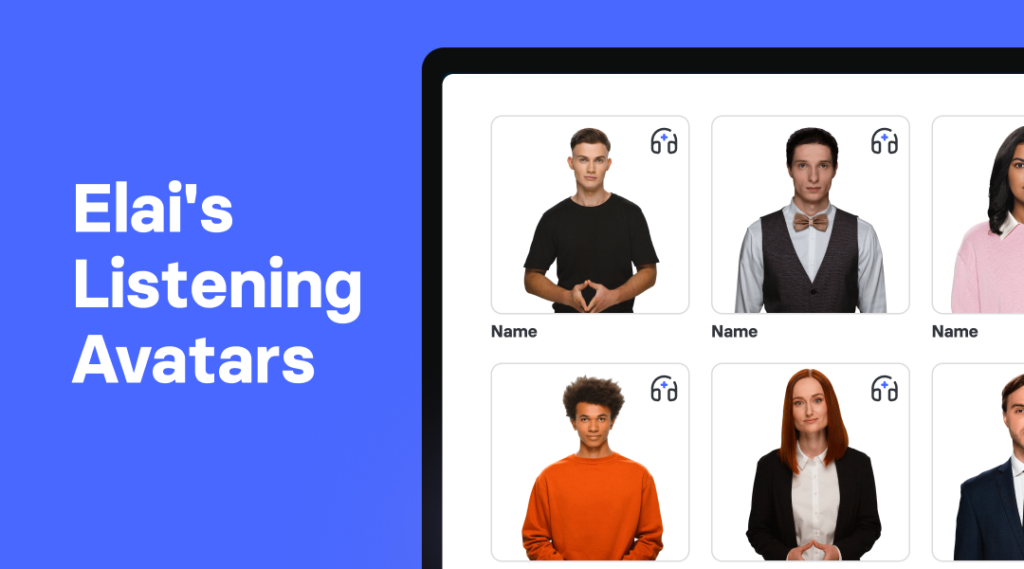What is role play in education? Role play is an imaginative and interactive training technique where each participant steps into a specific role to mirror a real situation. The role play training method transforms learning into creative activity. It involves not only storytelling, but also simulation, and improvisation. Role play training benefits is experiencing real-life situations in order to prepare yourself for them. For instance, you need to pitch an article to a publisher and pretend to do so with another colleague in a training session. Role play teaching method examples are helpful when it comes to handling different situations in a safe space.
Role play training can be used to develop specific skills based on interpersonal interactions. It helps to manage conflicts and learn how to negotiate and deal with negative feedback. Also, this type of training boosts the learner’s confidence, trains critical thinking, and enhances their emotional intelligence.
Videos can improve the way role play training is perceived. Seeing and hearing how others act can help understand the nuances of body language, tone of voice, and other crucial non-verbal cues. Also, with videos it’s possible to create a variety of scenarios that might be difficult to replicate in live training situations. Beside it, crafting role play training videos can be more cost-effective.
Role Play Training Examples in Sales
Knowledge is power in the bustling sales world, but experience is king. This is where role play training videos step in, revolutionizing how sales skills are taught and mastered. Role play training videos in sales are not just a theoretical exercise; they are versatile tools adaptable to various real-world applications. One of the most common use cases is in onboarding new sales staff. These videos offer a first-hand look into typical customer interactions, helping newcomers acclimate to the sales environment before making their first call. New employees can watch seasoned professionals navigate complex sales scenarios, from handling objections to sealing the deal. This visual and practical approach accelerates the learning curve, equipping new salespeople with the confidence and skills they need to hit the ground running.
Another impactful application of role play videos is the upskilling of existing sales teams. The sales world is ever-changing, with new products, services, and customer needs emerging constantly. Role play videos can simulate these evolving scenarios, providing a dynamic platform for sales teams to practice and perfect their approach to new challenges. Imagine a sales team grappling with the nuances of a new product launch. A well-crafted role play video training can illustrate effective selling techniques for this new product, offering a vivid and engaging way for the team to learn and adapt their sales strategies. In essence, these videos are a bridge, connecting sales teams with the evolving demands of the market, ensuring they stay sharp, relevant, and successful.

Use Case of Role Play Training in Conflict Resolution Conversations
Role play training corporate videos are particularly effective when it comes to teaching conflict resolution. Imagine a scenario where two colleagues are in a disagreement: a role play in training and development can bring this situation to life. It allows viewers to see how a conflict escalates and then, importantly, how it can be resolved. These videos can demonstrate key techniques in conflict resolution like active listening, empathy, and assertive communication. Watching actors play out these scenarios help viewers understand what to say and also how to say it – the tone of voice, body language, and timing that can make all the difference in a tense conversation.
The real value of using role play videos for conflict resolution training lies in their ability to show the consequences of different approaches. Role play training for employees can show how ignoring a colleague’s concerns can lead to increased tension, whereas acknowledging their feelings and seeking for a compromise can lead to a positive outcome. This practical approach makes the learning experience more relatable and memorable. It’s a safe way to learn from mistakes without actually having to make them in the workplace.
Integrating AI in Role Play Training Videos
The integration of Artificial Intelligence (AI) in role play video training is transforming the nature of sales training, pushing the boundaries of what’s possible in creating realistic, engaging learning experiences. AI-driven role play videos offer a level of personalization and adaptability that traditional methods can’t match. With AI, these training videos can analyze a learner’s performance, providing tailored feedback and suggestions for improvement. This technology excels in the learning experience and makes the training more relevant to the individual’s needs.
In this case, one of the most innovative applications of AI is those that use generative AI for creating videos. For instance, Elai.io leverages special avatars and text-to-video technology to create professional videos with AI-generated narrators. This approach eliminates the logistical challenges of traditional video production, such as renting space, dealing with complex software, or hiring actors. With Elai.io, companies can quickly produce a range of role play scenarios, each narrated by an AI avatar that delivers content in a human-like, engaging manner. This technology democratizes video production, making it accessible and practical for businesses of all sizes to create high-quality training materials. Two avatars can even maintain a believable dialogue, switching the listener and speaker roles.

AI in role play training videos can dynamically adjust scenarios based on a learner’s progress. For instance, if a learner excels in handling fundamental sales objections, the AI can introduce more complex challenges, keeping the training challenging and engaging. This adaptive learning approach ensures that the movement is always aligned with the learner’s current skill level, maximizing the effectiveness of the training program.
Lastly, integrating AI into these training tools opens up possibilities for predictive analytics and improved training strategies. AI can identify trends and patterns in learning outcomes by analyzing the performance data across numerous training sessions. This insight allows trainers to refine their training programs, focusing on areas that need more attention and continuously improving the effectiveness of their sales training. In this way, AI enhances individual learning experiences and contributes to the overall advancement of sales training methodologies.

